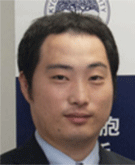- Japan(Japanese / English)
- Global
- MBL TOP
- MBL site search
“Generating and Regenerating Ureteric Bud Organoids with Branching Morphogenesis Using Human iPS Cells” from Dr. Shin-Ichi Mae, Kyoto University

Shin-Ichi Mae, Ph.D.
Program-Specific Research Center Assistant Professor, Osafune Laboratory, Department of Cell Growth and Differentiation, Center for iPS Cell Research and Application, Kyoto University
[Biography]
| March 2008 | Graduated from the Department of Functional Polymer Science, Faculty of Textile Science and Technology, Shinshu University |
| March 2010 | Completed the Master course, Graduate School of Medicine, Shinshu University |
| March 2014 | Completed the Doctoral Course, Graduate School of Medicine, Kyoto University |
| April 2011–March 2014 | Recipient of Research Fellowship for Young Scientists from the Japan Society for the Promotion of Science (DC1) |
| April 2014–March 2016 | Special Researcher, Osafune Laboratory, Center for iPS Cell Research and Application, Kyoto University |
| April 2016–present | Program-specific research center assistant professor at the Osafune Lab., Center for iPS Cell Research and Application, Kyoto University |
Overview
The end-stage renal failure requires renal replacement therapies such as dialysis therapy or kidney transplantation. Treatments for this disease and many others necessitate the development of regenerative medicine for kidney disease using induced pluripotent stem cells (iPSCs), a highly anticipated approach to provide solutions and lead to treatments. Using laboratory animals, there have been gradual advances in the elucidation of the mechanism of renal development and the characterization of renal progenitor cells. It is now possible to generate nephron organoids from human pluripotent stem cells based on these animal study findings. Furthermore, many attempts were made to induce the differentiation of the ureteric bud structure as a renal progenitor tissue; however, the characteristic branching morphogenesis was infrequently observed and remains an important issue needing resolution. Against this background, we made efforts to improve previously published methods that resulted in successful generation of ureteric bud organoids with repeated branching morphogenesis from human iPSCs. We also succeeded in developing a method for selectively inducing ureteric bud tip cells from constituent cells of induced ureteric bud organoids, and regenerating ureteric bud organoids from the tip cells in expansion culture.
These findings can now help advance future research by applying this developed method to various human iPSC lines, including patient-derived iPSCs, for clinical applications, such as the elucidation of the mechanism of ureteric bud branching morphogenesis, generation of disease models, and exploration of new therapeutics.



